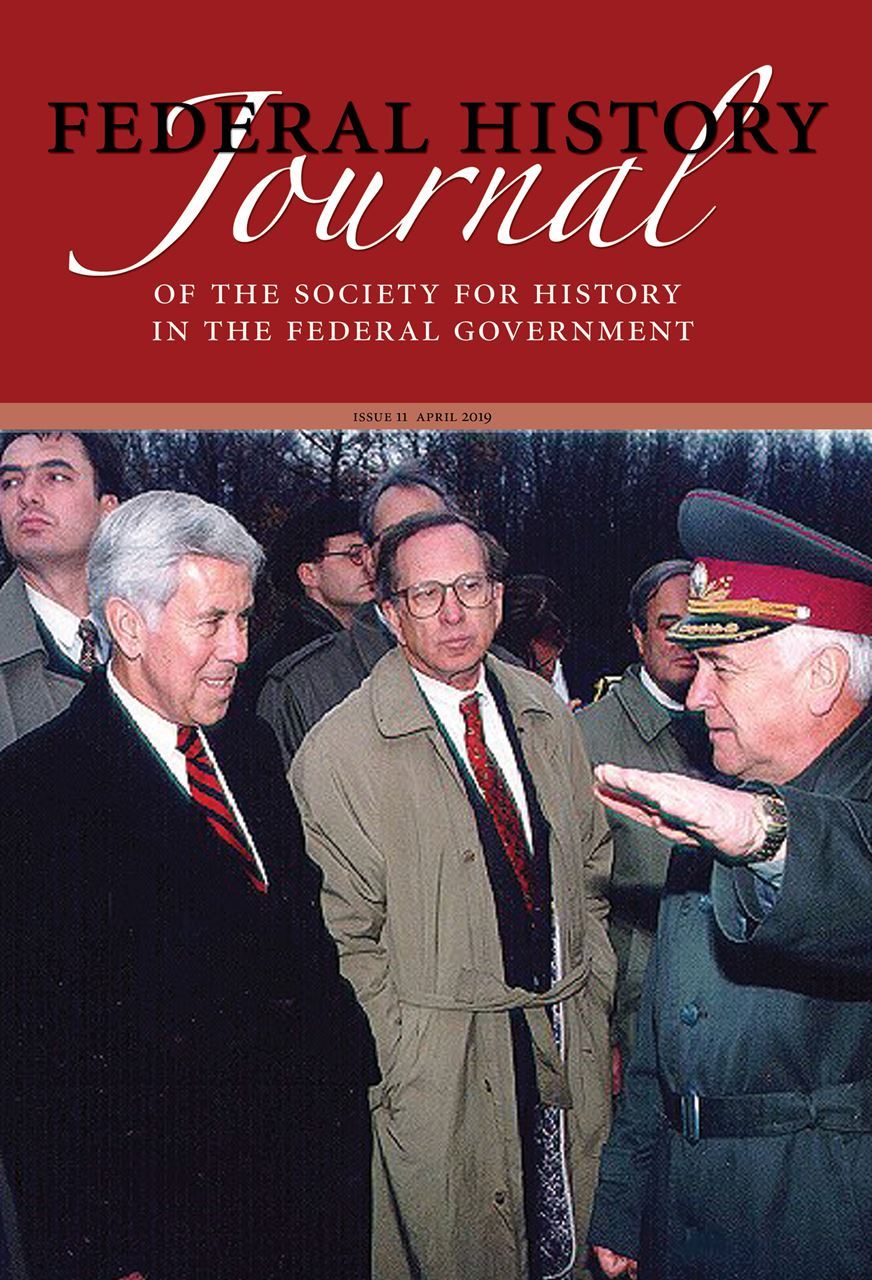|
Cover: Senator Richard Lugar (left) and Senator Sam Nunn (center) consult with Gen. Vladimir A. Mikhtyuk of the 43rd Rocket Army concerning Ukraine’s “inherited” strategic nuclear forces following the breakup of the Soviet Union. Read the story on page 13 of the passage of the Nunn-Lugar Act of 1991, which helped organize U.S. efforts to remove nuclear, chemical, and biological weapons from the breakaway republics. |
|
Contents
— Benjamin Guterman
Roger R. Trask Lecture
— Stephen P. Randolph
Articles
Dismantling the Soviet Threat: Senator Sam Nunn and the Problem of “Loose Nukes”
— Frank Leith Jones
“By the Force of Our Arms”: William D. Leahy and the U.S. Intervention in Nicaragua, 1912
— Scott Mobley
Trafficked White Slaves and Misleading Marriages in the Campaigns Against Sex Trafficking, 1885–1927
— Jessica R. Pliley
Shaping the Contours of Federalism: The American Civil War and the Negotiation of Nation-State Power
— Stephen D. Engle
The American Freedmen’s Inquiry Commission, 19th-Century Racial Pseudoscience, and the False Assessment of Black America, 1863–1864
— Jeff Strickland
— John H. Sprinkle, Jr.
War Stuff: The Struggle for Human and Environmental Resources in the American Civil War
By Joan E. Cashin
— Reviewed by Ryan K. McNutt
Upon the Fields of Battle: Essays on the Military History of America’s Civil War
By Andrew S. Bledsoe and Andrew Lang, eds.
— Reviewed by Alexandre F. Caillot
Great Power Rising: Theodore Roosevelt and the Politics of U.S. Foreign Policy
By John M. Thompson
— Reviewed by Jeremi Suri
Religious Freedom: The Contested History of an American Ideal
By Tisa Wenger
— Reviewed by Mary Kupiec Cayton
The Flying Tigers: The Untold Story of the American Pilots Who Waged a Secret War Against Japan
By Sam Kleiner
— Reviewed by Terence Christian
Nature Behind Barbed Wire: An Environmental History of the Japanese American Incarceration
By Connie Y. Chiang
— Reviewed by Jeffery F. Burton
Federal History features scholarship on all aspects of the history and operations of the federal government, and of critical historical interactions between American society and the government, including the U.S. military, 1776 to the present. It also publishes articles examining contemporary issues and challenges in federal history work. The journal highlights the research of historians working in or for federal agencies, academic historians, and independent scholars.
For submissions or inquiries, e-mail the Federal History editors at federalhistory@gmail.com
ISSN 2163-8144 (print)
ISSN 1943–8036 (online)

